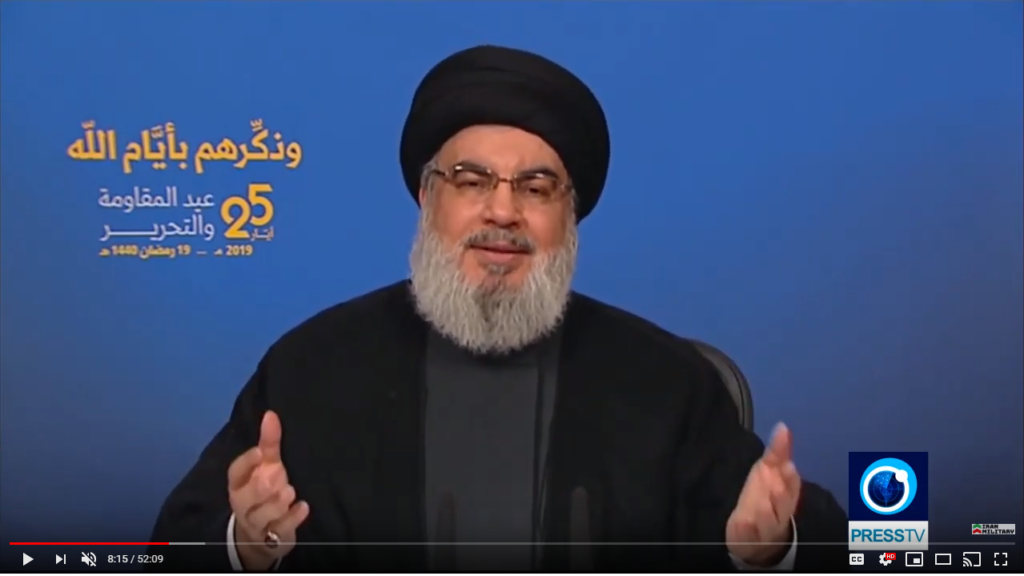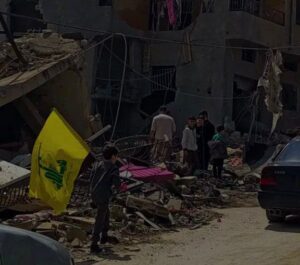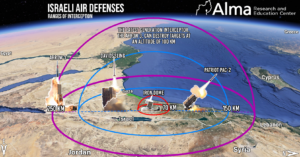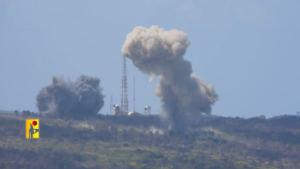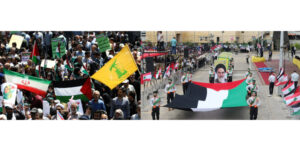In his speech on May 13 Nasrallah addressed three main issues:
- Missile production in Syria.
- The extent of the Iranian presence in Syria.
- smuggling on the Syria-Lebanon border.
As for the first issue of missile production in Syria, there is a general statement in his speech saying, “Because Israel was defeated in southern Syria, it began to attack everything related to the missile production in Syria”. In our estimation, Nasrallah explicitly hints at the production and upgrade of precise missiles, carried out under Iranian patronage on Syrian soil. Recently, the Iranians and Hezbollah have been trying to transfer the production and upgrade system to Lebanon, believing that Israel will refrain from attacking it; however, they are experiencing logistical and technological difficulties doing so.
After Nasrallah’s speech, “Al-Manar” correspondent Ali Shoaib, one of the main Hezbollah mouthpieces, tweeted; “the weapons are in the warehouses and homes of all Lebanese parties and everyone knows that. Any other words are deceiving and ignorant. Israel’s problem is not with these weapons but with the rocket force that threatens her…”. Ali Shoaib’s statement is a direct and clear reference to the “human shield” policy cultivated by Hezbollah.
Reports in recent weeks state that the Iranian presence in Syria, including the number of flights from Iran to Syria have decreased. Among other things, the decrease has been linked to Israeli activity throughout Syria. Nasrallah denies such a possibility (this corresponds with our assessment as expressed in a number of our recent articles). Nasrallah claims that there are only “advisers” on Syrian soil but no genuine Iranian troops or units. Are we to believe that Revolutionary Guards, Quds and Basij forces are not considered genuine Iranian troops or units on Syrian soil?
Nasrallah’s claim that “the Iranian militias on Syrian soil are run by the Syrian army” is a completely refuted claim. The reality is just the opposite. The Iranians and Hezbollah partially run the Syrian army. Shiite militants fighting in Syria are a distinct Iranian product, beginning with their foundation and training to their direction and command. The Syrian army has no control over them; they assist as an Iranian proxy according to Iranian interest as needed.
The third issue of smuggling along the Syrian-Lebanese border is related directly to the first issue of missile production in Syria. The upgraded missiles in Syria and important parts of the project are transported to Lebanon by land via informal crossings between the two countries. We believe Nasrallah’s words have a double meaning. The first meaning is directed inward as the second meaning is directed outward. His statement that “the Lebanese army cannot prevent smuggling” is an inward message meant for the Lebanese. In fact, Nasrallah is implying that Hezbollah will not allow the Lebanese army to deploy along the border and prevent smuggling, which would in effect, interfere with Hezbollah’s transfer of weapons from Syria to Lebanon.
His statement that “no UN force will be stationed at the border preventing the smuggling, as it would harm the deterrent force protecting Lebanon and would be considered an Israeli achievement” is an outward message, mainly in light of the talks on economic assistance to Lebanon. One of the conditions for assistance from the IMF (International Monetary Fund) is the stationing of international forces to monitor the border between Syria and Lebanon. There is no doubt that such a force could also interfere with the Iranian and Hezbollah extensive activities in smuggling high-quality weapons into Lebanon. Not to mention Nasrallah’s explicit statement that putting such a force in place would hurt the power of deterrence protecting Lebanon (i.e. Hezbollah’s intention of equipping itself with high-quality precise weapons …).
*The photo featured on top of page is from a previous speech from May 2019.

